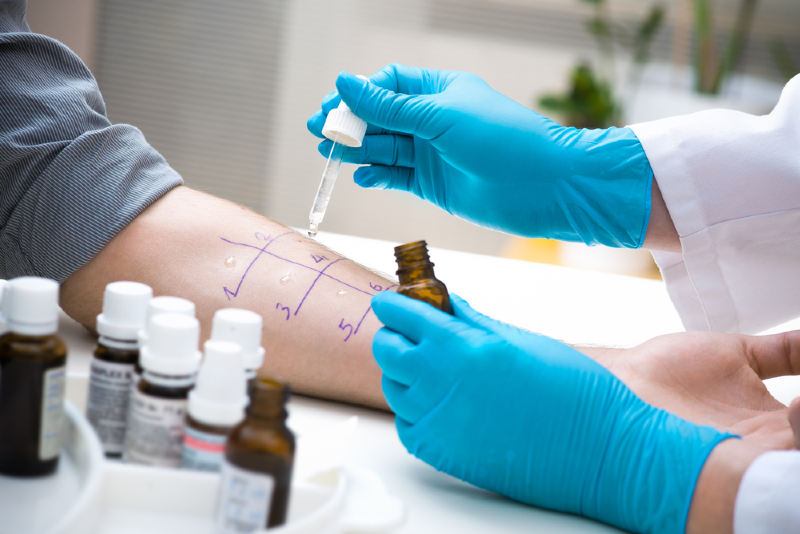Dr Timothy Watts, Consultant Physician in Adult Allergy, introduces this new allergy service taking place at 5 Devonshire Place, every Friday evening. Here, Dr Watts tells us more about allergy diagnosis and treatment.
About Timothy Watts
Dr Watts is a Consultant Physician in Adult Allergy at Homerton University Hospital NHS Foundation Trust and a Honorary Clinical Senior Lecturer at Imperial College London. He has extensive experience in all aspects of allergic disease, with specialist clinical and research interests in drug allergy and cutaneous allergy (patch testing).
Broadly speaking, what is allergic disease and the range of symptoms?
Allergic disease is an exaggerated immune response to common environmental allergens such as food, pollens, medication, venom, chemicals, dust mites and animal danders.
Allergy can be both immediate (i.e. food allergy) or delayed (i.e. allergic contact dermatitis) in presentation.
There are a variety of symptoms including:
- asthma
- eczema/dermatitis
- conjunctivitis
- angioedema
- rhinitis
- urticaria
- anaphylaxis
How are different allergies diagnosed?
We use a variety of testing methods in the clinic, including skin prick testing and patch testing to a great variety of allergens.
We also have access to advanced specific IgE blood tests which can investigate allergies to food, inhalants and venom.
Further testing includes challenge studies or provocation tests, which can be used to confirm or exclude allergies to different foods or drugs. hese are typically done in a supervised day-care unit setting.

What are the current forms of treatment?
The most important part of managing allergy is giving an accurate diagnosis, followed by avoidance advice, and therapeutic strategies where relevant.
This empowers the patient going forwards and ultimately vastly improves their quality of life.
In the case of ongoing inhalant allergies, such as hay fever or dust mite allergy, we can recommend a steroid nasal spray, eye drops, antihistamines, and other oral or nasal therapies.
In more severe cases, we can prescribe immunotherapy (desensitisation) which is a three-year treatment programme, through which the body gradually becomes used to the allergen, and develops tolerance.
Treatment involves being given a programme of small doses of the allergen to build up this eventual tolerance. In certain patients this can be very effective therapy.
House dust mite allergy for instance is a big cause of perennial rhinitis and by introducing eradication measures, such as reducing soft furnishings, washing laundry at 60 degrees plus, good ventilation, the allergy symptoms can be reduced.
It is important when patients have been diagnosed with primary food allergy, that they are prescribed an adrenaline autoinjector, as this is life-saving treatment in cases of anaphylaxis.
In your view, should we all be tested for allergies (when not presenting with strong identifiable symptoms) or is this unnecessary?
I wouldn’t advocate doing testing without a history of relevant symptoms. Testing should be target-based upon those symptoms.
The only exception to the rule would be for persisting eczema not responding to treatments, as patch testing might be appropriate to exclude a contact dermatitis.
It is also important to highlight that food allergy does not cause eczema.
What does the future of allergy testing and treatment look like?
Allergy diagnostics and therapies have come a long way in the last decade and will continue to do so going forward. Blood tests will become more advanced, more accurate and more available.
We may be able to more routinely desensitise people to food allergies, such as nuts. There are a lot of clinical trials going on in the field of oral immunotherapy to foods right now.
How important is research in this area?
Incredibly important – without it we wouldn’t have the tests we have today to diagnose allergy accurately.
Furthermore, research from clinical trials provides the evidence we need to introduce new therapies to manage allergy (e.g. making desensitisation for food allergy more mainstream).





